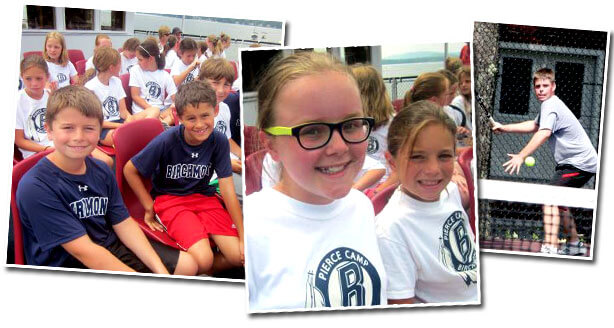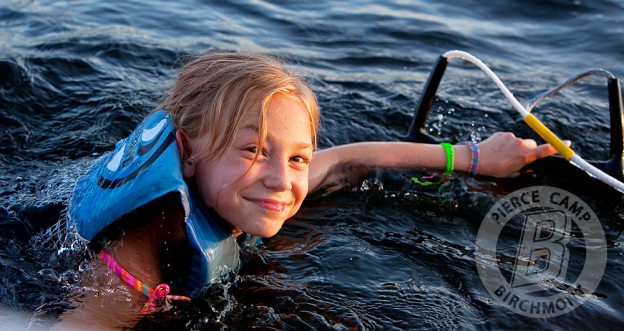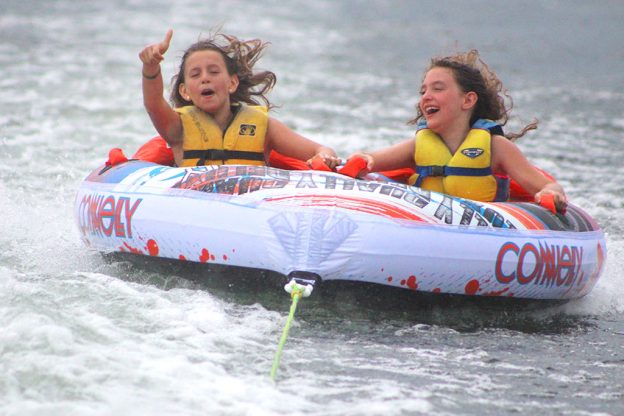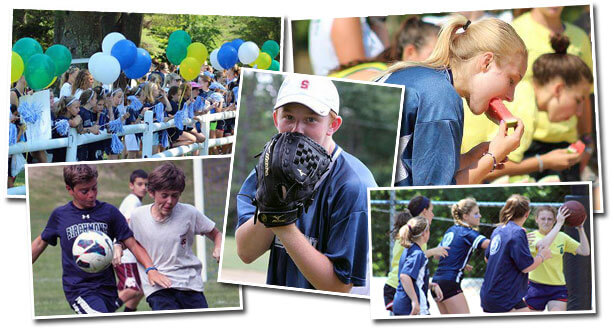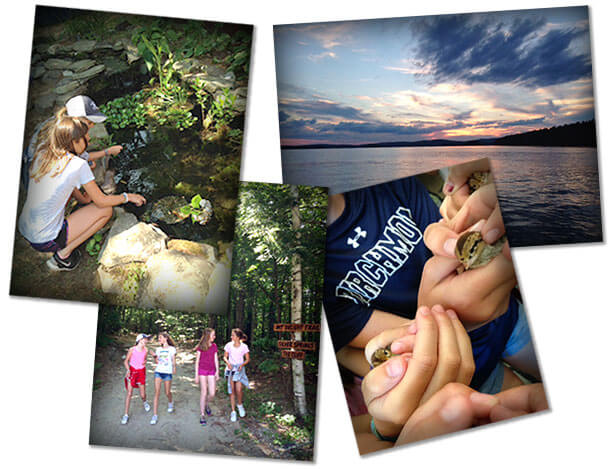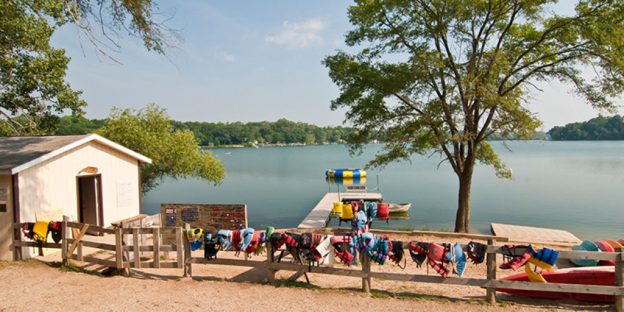Free from school-year demands, summer camps are a key venue for social-emotional learning
By Leah Shafer, on July 1, 2016 11:23am
Summer camp: For so many kids, it signifies carefree days of swimming, playing sports, singing songs, and reveling in freedom from the demands of the school year. Camp means no homework, no studying, and no teachers.
But significant learning is still taking place at summer camp — even if the campers don’t necessarily realize it.
Summer Learning (Without the Books)
All those classic camp dynamics — being away from home and parents, making new friends, being part of a team, and trying new things — are building blocks to crucial social-emotional skills.
Social-emotional learning (SEL) can encompass a variety of practices, but most experts agree that a child with high SEL skills is successful in five core areas: self-awareness, self-management, social awareness, relationship skills, and responsible decision making. These skills are increasingly understood to be central to success in school and in professional life beyond, but schools don’t always have the time or capacities to teach them explicitly. Obligations to complete curriculum and boost student achievement often make it difficult for teachers to prioritize community building, goal-setting, or problem solving in their classrooms.
Unconnected to the commitments of the school day, summer camps (particularly overnight camps) can dive head-first into social-emotional learning — and many do. These opportunities are especially importance for low-income students, many of whom already have fewer opportunities to gain these skills outside of school.
A 2005 study of 80 camps by the American Camp Association (ACA) found significant growth in children’s social-emotional skills after a session of summer camp. Camp staff, parents, and children reported increases in children’s self-esteem, independence, leadership, friendship skills, social comfort, and values and decision-making skills, from the beginning to the end of a session.
What a Good Camp Experience Looks Like
It’s not just the new environment and flexible schedule that builds kids’ social-emotional skills. Many camps have an intentional focus on social-emotional learning. YMCA camps, for instance, explicitly discuss their four values — honest, caring, respect, and responsibility — constantly, through songs, skits, and rallies. And most camps train staff to coach kids on becoming more independent, socially aware, and reflective.
In particular, camps foster relationship skills and social awareness by:
- Introducing children to an entirely new group of peers. Camp may be the first time children have spent substantial time with people whose background — home, race, or religion — is different from their own.
- Setting up opportunities for children to find their own friends. According to education researcher and longtime camp counselor and director Claire Gogolen, counselors often begin a session by leading icebreakers and regularly sorting a cabin group into different pairs. These activities give campers explicit opportunities to get to know each other, allowing them to figure out who they want to become better friends with.
- Creating a space where silliness is accepted, and bullying is not. Without the need to plunge into academic content, camps have time to use the beginning of a session to prioritize group norms, says learning specialist and former camp counselor and director Ari Fleisher. Counselors can make it very clear that bullying and teasing are not acceptable. At the same time, camps can encourage songs, jokes, and general silliness that allow campers to relax and be themselves.
- Taking a break from technology. Many overnight camps restrict or prohibit phones and computers. For many campers, this means it’s the first time they’ve made friends without the help of Instagram or Snapchat, and they learn how to navigate social cues to build and maintain friendships in “real life.”
- Modeling teamwork and sportsmanship. During staff training, many camps stress the importance of adults demonstrating cooperation and friendship to their campers. When campers are surrounded by positive role models — particularly role models closer to their own age than teachers are — they learn how to get along with peers who may be different from them.
Camps also nurture self-awareness, self-management, and responsible decision making by:
- Requiring children to solve day-to-day problems on their own. With limited contact with parents, campers have to learn how to manage their own conflicts, whether it’s a disagreement with a bunkmate or not getting their first-choice activity.
- Presenting activities that are new to everyone. Counselors often purposefully lead games and activities that none of their campers have tried before, says afterschool specialist and former camp counselor Nicky DeCesare. Without the fear that some peers will already have a leg-up on lava tag or basket making, children may be more likely to decide to try new things.
- Offering kids the chance to set and accomplish daily goals. The sheer amount of new activities makes it possible for kids to continually set and achieve goals, deepening their understanding of personal limits. One day a camper may be set on reaching the top of the climbing wall, and the next she may be determined to collaborate with her group to create a new song.
- Helping children uncover new skills. Kids who are usually immersed in academics may become aware of new skills that they didn’t know they had. For children who struggle in school, these opportunities can increase self-confidence.
- Providing time for reflection. Many camps begin or end the day with reflection activities, in which campers can think about the challenges they’ve faced, how they’ve grown, and what they’re excited for. These moments, rare in a typical school day, can develop self-awareness and mindfulness for all kids.
Additional Resources
Read the full American Camp Association report.
 Camp Birchmont
Camp Birchmont
